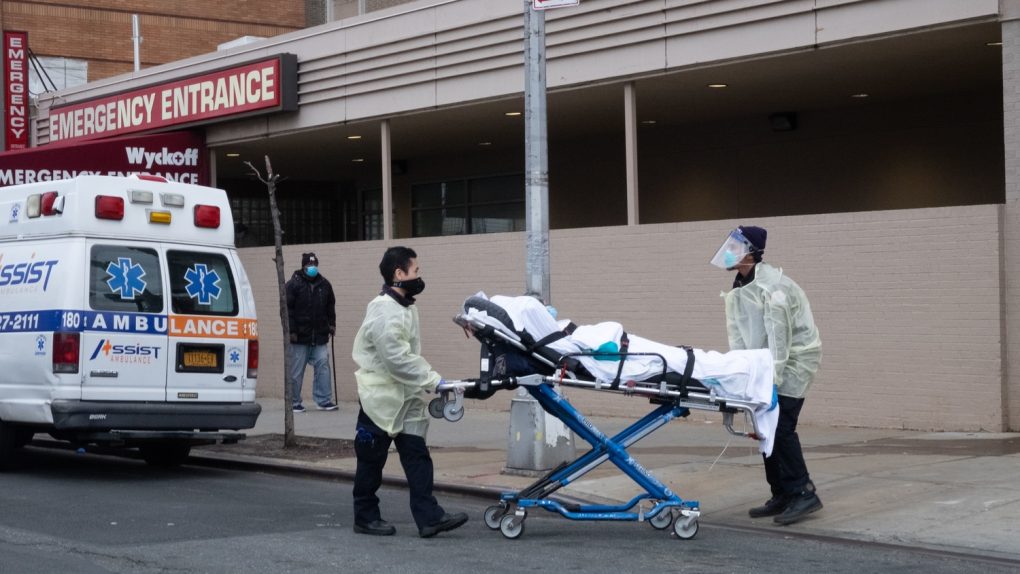- A new type of coronavirus treatment might be ready even before the first vaccine candidates are approved.
- Monoclonal antibody therapies can be used to treat an existing infection and provide temporary immunity.
- Eli Lilly is one of the companies testing two such potential COVID-19 treatments and thinks the meds could be approved as early as September if tests go well.
A handful of vaccines working in tandem around the world could stop this pandemic in its tracks and give us the herd immunity that we need. That’s the dream, but it could be years before we make it a reality. It’s not enough for vaccines to be effective and safe. They also need to be widely available, and that’s quite a challenge.
Some companies have already started mass-producing their vaccine candidates at risk before the results of the final testing stage are out. But it won’t be enough to satisfy global demand. In fact, pharmaceutical executives said during a meeting there aren’t even enough vials to go around to mass-produce 15 billion vaccines for the novel coronavirus. Assuming the logistics weren’t a nightmare, there’s also a key question we won’t have the answer to for another few months. We have no idea how long COVID-19 immunity lasts, whether you survive the disease or are vaccinated. But scientists suspect it might not be longer than a year.
A different class of drugs that can both cure COVID-19 and prevent the infection might be our best bet in the near future. These medicines are already in human testing phases, and they could be approved as early as September, long before any vaccine candidates make their way out to the public.
These brand new COVID-19 drugs aren’t repurposed drugs like remdesivir, hydroxychloroquine, or anything else we have heard so much about. They’re monoclonal antibodies that were crafted specifically to block the virus from attaching itself to cell receptors. The immune system creates these antibodies when it comes in contact with a pathogen for the first time, or with a vaccine. COVID-19 survivors will have antibodies that may be stronger or weaker at blocking the infection. That’s why they can help treat other people by donating plasma.
Patients at risk, including the elderly and people with preexisting conditions, might not be able to produce their own antibodies, but monoclonal antibody drugs could help. The drugs would not only neutralize an infection, but could also block the infection in the first place. As long as the antibodies are circulating the bloodstream, they could fight SARS-CoV-2. This is where vaccines have the advantage over monoclonal antibody therapy, as vaccines teach the human body to manufacture its own antibodies and provide longer-lasting immunity. On the other hand, vaccines don’t work on people who are already sick.
Eli Lilly is one of the several drugmakers that have started clinical trials with monoclonal antibodies. The company launched Phase 1 of its clinical experiments a couple of weeks ago in the US, where the LY-CoV555 candidate is being studied. The drug neutralized the coronavirus in lab tests, which allowed Eli Lilly to move forward with human trials. Separately, the company is testing a candidate called JS016, developed with Chinese drugmaker Shanghai Junshi Biosciences. A third antibody treatment is in preclinical phase, Chief Scientific Officer Daniel Skovronsky told Reuters a few days ago.
“For the treatment indication, particularly, this could go pretty fast,” he said in an interview. “If in August or September, we’re seeing the people who got treated are not progressing to hospitalization, that would be powerful data and could lead to emergency use authorization.”
“So that puts you in the fall time: September, October, November is not unreasonable,” he added.
The primary goal for these monoclonal antibody therapies is to cure COVID-19 patients and prevent serious COVID-19 complications. We have already heard plenty of stories about patients with degrading conditions who got better after receiving plasma transfusions from donors. Antibodies worked in these instances, so monoclonal antibody therapies certainly sound promising.
Mass-producing enough pills to meet demand could be just as challenging as manufacturing enough vaccine units. But Eli Lilly is one of several companies conducting clinical trials on monoclonal antibody drugs, and all of these candidates proved to be effective in lab tests.








